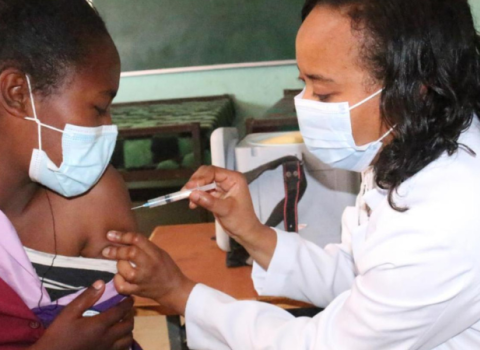Grant
Scientists at Liverpool University have been awarded £1.7 million to investigate how nanotechnology could be used to improve the effectiveness HIV drugs in a three-year joint project with Astra Zeneca, Merck, Gillead, Abbott and Iota NanoSolutions.
The collaborative project between the departments of Chemistry and Pharmacology will apply nanotechnology to improve the solubility and targeting of the drugs. By producing existing drugs in nanoparticle form, the project hopes to improve absorption. The project will also investigate the possibility of reducing toxic side effects by administering smaller doses of nanoparticle formulations, without reducing the on-target effect of the drug.
This project is one of ten, worth a total of £16.5 million, that have been awarded by the Engineering and Physical Sciences Research Council as part of Nanotechnology Grand Challenge, which aims to develop new techniques for screening and treating cancer, stroke, AIDS, influenza, MRSA and dementia.
The Liverpool project will focus on the 20 or so marketed treatments for HIV, where it is important to administer a high enough dose to ensure the virus is prevented from replicating, whilst avoiding excessively high doses that allow the development of resistance to the drugs. In addition, drugs that are used to prevent HIV infection developing into AIDS must be taken long-term and have significant associated toxicity when administered over a lifetime. Complications include heart problems, osteoporosis and visible fat redistribution. There is therefore a delicate balancing act required in dosing.
Steve Rannard, of the Department of Chemistry, said several new nanoparticle drugs are now commercially available. “Our approach will use existing drugs but will focus on changing their size rather than their chemistry. We aim to control their activity and the ability to target the drug to areas where the virus is usually inaccessible.”
“Our close collaboration with industry partners and advisors will ensure that we maximise the opportunities available through nanotechnology and, more importantly, that we improve current methods of healthcare for the benefit of patients.”
Andrew Owen, from the Department of Pharmacology, said, “We will explore the hypothesis that less medicine is needed in nano-form and hope to prove that creating nano-drugs could enhance their ability to kill the HIV virus while reducing their toxicity.”
“We will look closely at how much of each drug gets into the bloodstream and into different cells and hope to confirm that the nano-medicines are not toxic to their target cells or to the body as a whole.” In other projects scientists at Swansea University are leading a project with Boots the chemist to produce the first affordable home-based system for detecting stroke; Middlesex University is developing an affordable cancer screening device for use in local health clinics; Newcastle University is working on a hand-held sensor to test for infectious microorganisms such as MRSA.
Further additional funding for three years has been earmarked for the most successful projects with the expectation that the technology will be sufficiently advanced to secure further finance to advance application of the new technologies.





 A unique international forum for public research organisations and companies to connect their external engagement with strategic interests around their R&D system.
A unique international forum for public research organisations and companies to connect their external engagement with strategic interests around their R&D system.